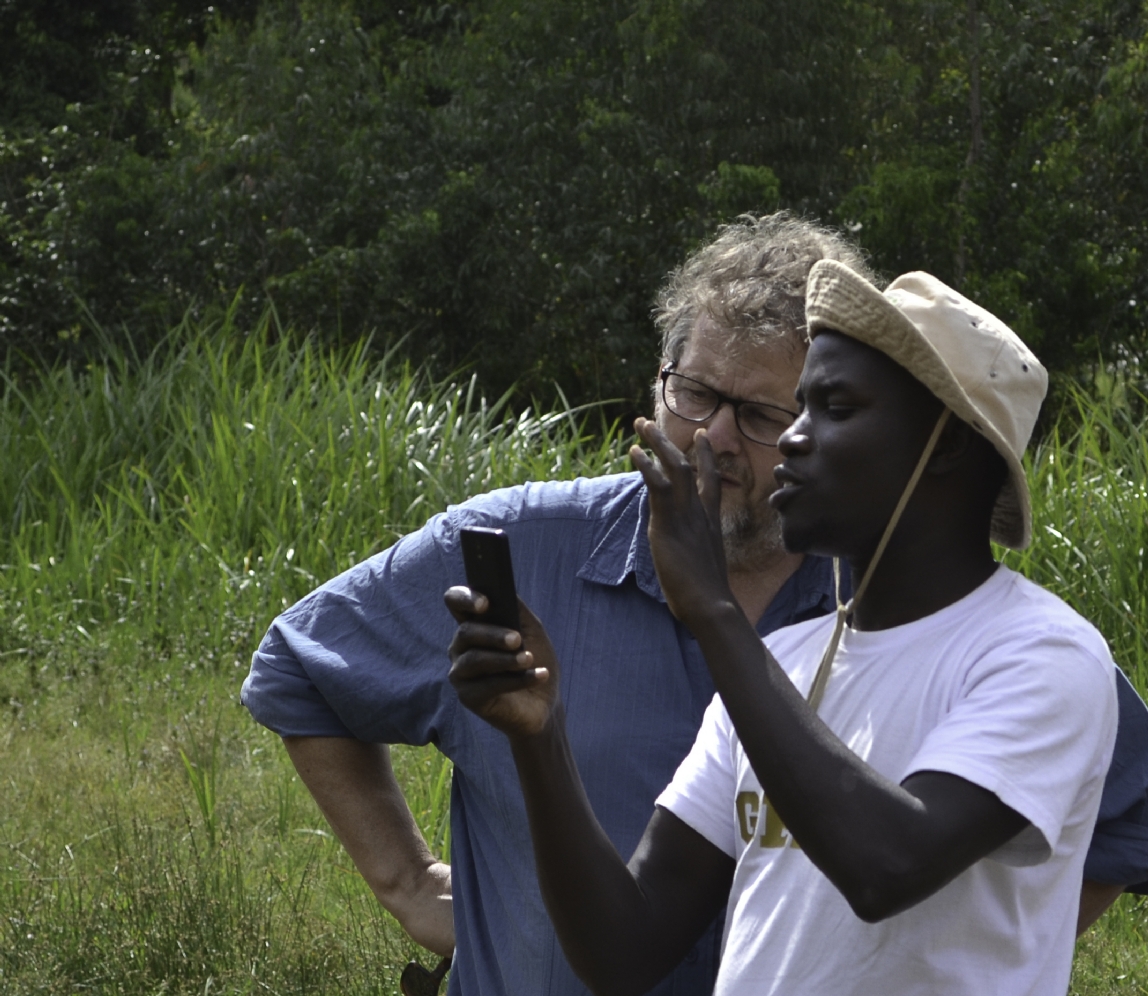“The best solutions emerge when local expertise is brought in”
For many years, Ricus Jacometti has been committed to credible and partnership-based development cooperation.
A trained agronomist, he has worked in East Africa, Central Africa, Southeast Asia and the Caribbean. Today, he contributes his experience from the Medicor Foundation and the Tellerrand Association, a co-founder of the LED, to the work of the Board of Trustees. In this interview, he talks about what motivates him, the values that guide his work and his vision for the future of development cooperation.
Mr. Jacometti, what motivates you to serve on the Board of Trustees of the LED?
My motivation stems from a long-standing passion for development cooperation. After completing my studies in tropical agriculture, I began working in this field in the 1990s and gained valuable experience in East and Central Africa, Southeast Asia and the Caribbean. I not only worked in these regions but lived there for several years. This intensive time on the ground showed me which aspects are truly decisive for the successful implementation of projects.
Since 2011, I have been working for the Medicor Foundation, which has allowed me to view development cooperation from a strategic perspective as well. Now, through my role at the LED, I want to contribute to a strategy that promotes a fairer world — one based on sound, partnership-oriented approaches.
The Tellerrand Association, which co-founded the LED, stands for the principle “think globally, act locally.” As a member of the association, I represent this seat on the Board of Trustees, and this approach fully aligns with my convictions. I see my role as building bridges between operational work in partner countries and the long-term impact that the LED aims to achieve.
Which values guide you in this work?
Over the years, I have witnessed and contributed to a fundamental shift in development cooperation — away from a paternalistic, charity-based approach toward genuine partnership on equal footing.
I am convinced that development cooperation is about creating opportunities, not prescribing solutions. Where and how these opportunities are realised should be discussed and implemented in a spirit of partnership and equality. It is not for us to dictate the direction, but rather to create the conditions in which local knowledge and expertise can truly flourish.
For the past two years, I have also been working with an NGO on a programme that embodies this principle. It focuses on enabling local organisations to apply their own knowledge while being accompanied and supported in the process. For me, this is the true essence of development cooperation: genuine partnership instead of patronising aid, empowerment instead of dependency.
Was there a particular experience that shaped your understanding of development work?
Yes. During my work in Haiti, shortly after the 2010 earthquake, I was part of an organisation that was developing new housing in one of the affected areas. The entire team — from the accountant to the driver — was involved in the process.
When the time came to present the model house, something remarkable happened: the Haitian team presented every detail of the design and the process themselves. The architect and the international staff simply sat in the audience and listened.
That moment deeply impressed me. It showed me that the best solutions emerge when local partners are given the space to confidently share and apply their expertise.
How do you see the role of development cooperation in the years ahead?
Development cooperation must continue to evolve - from one-sided assistance to genuine, mutual exchange on equal terms. This exchange should increasingly take the form of South-South and South-North cooperation, because learning is never a one-way street.
In the future, the focus will be even more on empowering local organisations to take responsibility and implement their own visions. They possess the knowledge, networks and legitimacy needed to drive sustainable change.
What would you like to promote in your work with the LED Foundation Board?
It is important to me that financial resources are not used as instruments of influence but as tools for jointly developed solutions. The LED should foster partnerships built on trust and shared decision-making power.
In practical terms, this means developing projects together with local organisations, ensuring transparent decision-making processes, and cultivating long-term relationships rather than short-term project cycles. This is the only way to create solutions that offer everyone the chance to live a dignified and fulfilling life — now and for future generations.
What has impressed you most during your time on the Board so far?
I have seen how much the LED has achieved through its long-term, targeted engagement. The new strategy is being implemented consistently, and it has become clear that the LED — as a small organisation from a small country — has established itself as a key actor in the fields of agroecology and vocational training.
I am particularly impressed by how critically and conscientiously the LED’s staff and management reflect on their work. This professional attitude is essential for effective development cooperation.
A personal highlight for me has been the developments in Cambodia, where the LED has been active for four years, building new partnerships and strengthening cooperation with the government. This work exemplifies how strategic planning can translate into tangible impact.
And what has been a special highlight for you in recent years?
One significant milestone was the cooperation agreement between Liechtenstein and the LED in Cambodia, an important step toward a long-term institutional presence. Equally meaningful was the increase in the official development cooperation budget approved by the government — not only a financial boost, but also a strong sign of trust and recognition of the LED’s work.
A very personal and moving highlight was the 60th anniversary of the LED. The Tellerrand Association prepared a wonderful gift - a short theatre performance by the Kreative Akademie Liechtenstein. This creative and heartfelt gesture beautifully symbolised the long-standing connection and shared commitment to global justice.
Thank you, Mr. Jacometti, for your insights.

